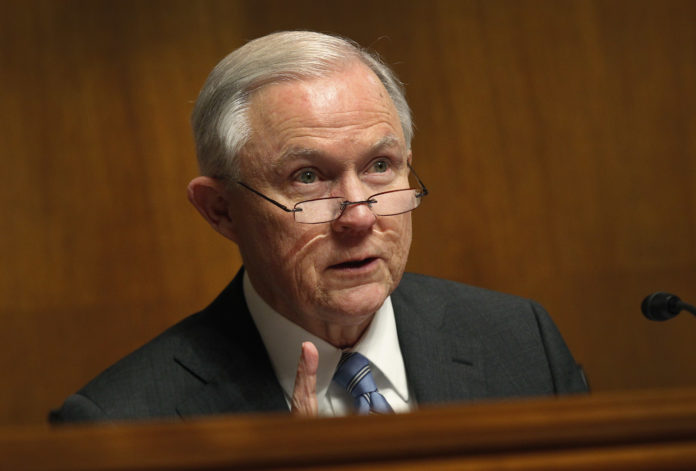
United States Attorney General Jeff Sessions stated that he believes in state’s rights at a Boston press conference about a federal sting operation that had two dozen people arrested on immigration fraud.
Instead of focusing on the detained undocumented immigrants, reporters asked Sessions about his commitment to state’s rights, a federal policy that often conflicts with the federal decision that marijuana is illegal in the United States.
Sessions answered that his Department of Justice will continue to follow its marijuana stance, that it is illegal in the United States, but added that “States have a right to set their own laws and will do so, and we will follow the federal law.”
It could be interpreted that Sessions is simply saying although states have the right to make their own laws, federal law also precedes state laws. This does not help solve the paradox in the state to federal marijuana laws.
Earlier in the year, Sessions reserved a decision from the Obama-era Department of Justice that said to be more hands-off when it came to states with legalized marijuana. He wrote that the previous issuance “undermines” the rule of law.
Two years ago, Massachusetts legalized cannabis. The state does not have systems in place to sell retail marijuana, and Sessions has the opportunity to stop the industry before it begin to sell marijuana for recreational use in the state.
Sessions believes that marijuana is not helpful to the public in any way, commenting that “Good people don’t smoke marijuana” in a Senate hearing in 2016.
Massachusetts cannabis regulators aren’t worried, however. They are confident that after they begin selling marijuana, the federal government will not intrude.
The Chair of the Cannabis Control Commission, Steve Hoffman, believes that a recent statement from one Session’s federal attorneys suggests that the federal policy still resembles the previous one.
The focus of the federal enforcement is focused on three things, according to federal attorney Andrew Lelling. First to make sure that the cannabis isn’t being brought to illegal markets, that it isn’t being distributed to minors, and cracking down on criminals who try to transport cannabis across state lines.
Cannabis Control Chair Hoffman is confident that these measures being put in place will address these focuses and avoid a crackdown from Sessions.













